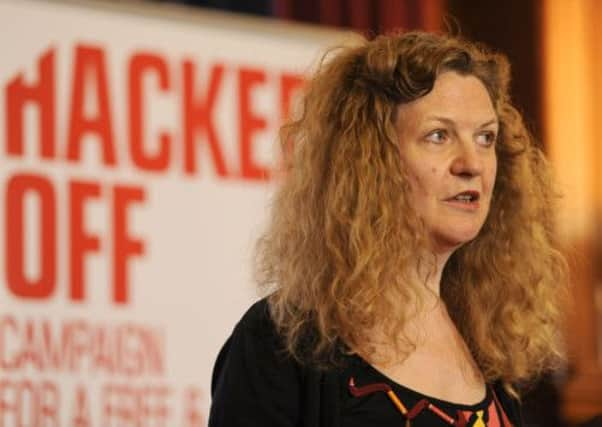New press watchdog will work, insists Cameron


Media organisations are deciding how to respond to proposals agreed by the main political parties, amid deep divisions over the implications for Britain’s centuries-old tradition of press freedom.
Some of the biggest national newspaper publishers warned last night that there are a number of “deeply contentious issues” surrounding the scheme unveiled in Parliament, which have still to be resolved.
Advertisement
Hide AdAdvertisement
Hide AdBut the Prime Minister said: “I’m confident that we’ve set up a system that is practical, that is workable, it protects the freedom of the press, but it’s a good, strong self-regulatory system for victims, and I’m convinced it will work and it will endure.”
Mr Cameron was visiting a nursery in Wandsworth, south London - along with Deputy Prime Minister Nick Clegg - to meet parents to discuss an announcement on childcare funding.
The Liberal Democrat leader said: “I think the whole design of Leveson was based on self-regulation, so not something imposed by anybody else, but independent self-regulation, but with a number of incentives which make it worth newspapers actually joining in the system.
“And that’s all to do with this detailed business of exemplary costs and damages which can be imposed upon newspapers that don’t participate in the system.
Advertisement
Hide AdAdvertisement
Hide Ad“I hope that when they examine the fine print, they will see that the incentives are strong and that it’s worthwhile, not least in order to restore public trust in the conduct of newspapers, for them to join in with the system, and I very much hope they will.”
There was outright condemnation from the Newspaper Society, representing the UK’s 1,100 local newspapers, which warned that the plans - including fines of up to £1 million - would place a “crippling burden” on local press.
“A free press cannot be free if it is dependent on and accountable to a regulatory body recognised by the state,” said Newspaper Society president Adrian Jeakings.
Meanwhile, the 57-nation Organisation for Security and Co-operation in Europe (OSCE) urged Britain not to abandon a tradition of press self-regulation regarded around the world as best practice.
Advertisement
Hide AdAdvertisement
Hide AdThe Prime Minister has said the deal hammered out in late-night talks between the Conservatives, Labour and the Liberal Democrats would safeguard investigative journalism and freedom while protecting the victims of press intrusion, in line with the recommendations of Lord Justice Leveson.
But there was immediate division between the parties as to the extent to which the new regulator had the “statutory underpinning” demanded by the Hacked Off group campaigning for tighter press regulation.
Under the plan, a royal charter - set to be approved by the Queen at the May meeting of the Privy Council - will establish a “recognition panel” to oversee the new system of press self-regulation.
At the same time, Bills going through the Lords and Commons were amended to prevent the charter being changed without the support of a two-thirds “super majority” in both Houses and to enable the courts to impose “exemplary” damages on newspapers which do not sign up to the new system.
Advertisement
Hide AdAdvertisement
Hide AdMr Cameron insisted they did not “cross the Rubicon” of creating a press law, which could be used by future governments to suppress free speech.
But Labour leader Ed Miliband maintained it did have “statutory underpinning”, while Lib Dem leader Nick Clegg - who sided with Labour against his Conservative coalition partner - said it was “a royal charter protected by legislation”.
A joint statement last night signed by the Mail and Telegraph groups, News International and Northern and Shell made clear they had serious concerns about the plan.
It stressed that - unlike Hacked Off, which had four representatives at the talks in Mr Miliband’s Commons office where the deal was clinched - they were not involved in the discussions.
Advertisement
Hide AdAdvertisement
Hide Ad“We have only late this afternoon seen the royal charter that the political parties have agreed between themselves and, more pertinently, the recognition criteria, early drafts of which contained several deeply contentious issues which have not yet been resolved with the industry,” the statement said.
“In the light of this, we are not able to give any response on behalf of the industry to this afternoon’s proposals until we have had time to study them.”